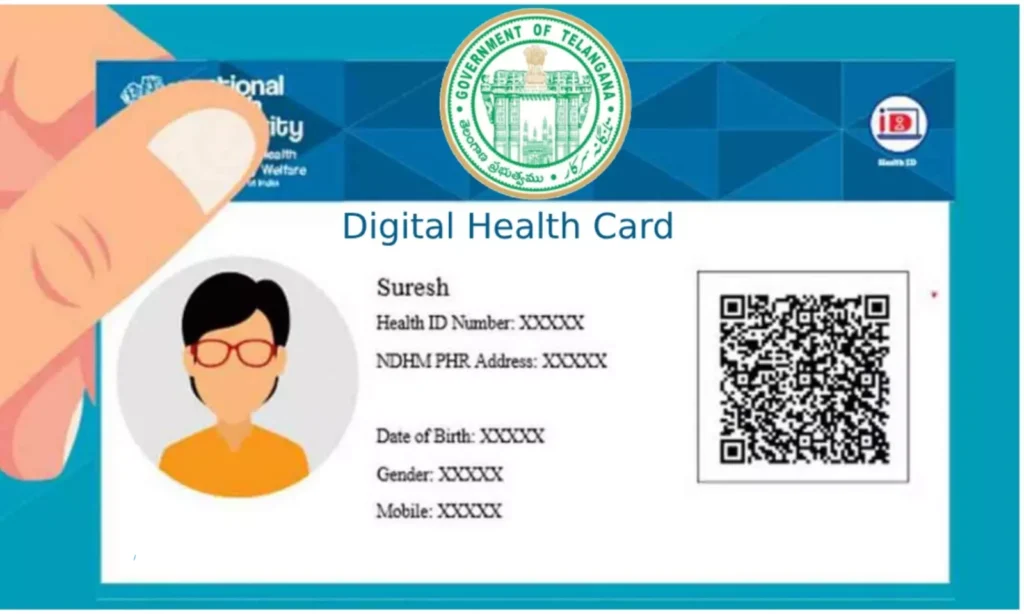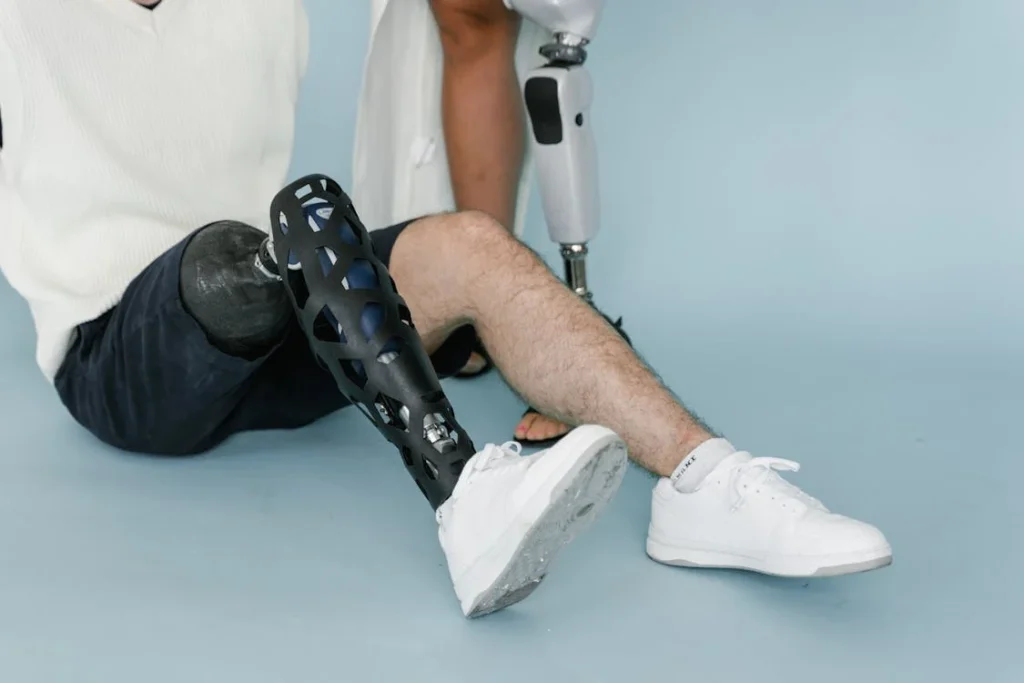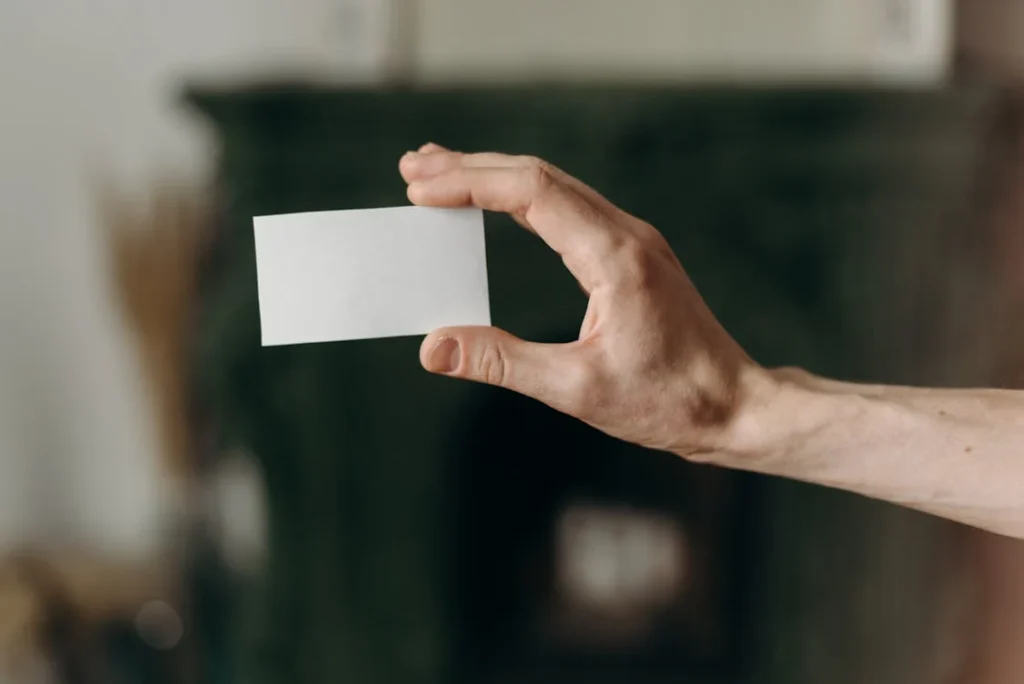Access to prosthetic limbs has always been a challenge in India, not just due to high costs but also because of complex insurance processes, limited awareness, and bureaucratic hurdles. For many individuals who require prosthetic limbs, getting financial coverage and medical benefits can be a difficult process, often requiring multiple approvals, paperwork, and long waiting times.
However, with the introduction of Digital Health Cards under the Ayushman Bharat Digital Mission (ABDM), the way healthcare services—including prosthetic coverage—are delivered in India is undergoing a major transformation. Digital Health Cards are making medical records, insurance claims, and financial aid for prosthetic limbs more accessible and efficient.

Understanding Digital Health Cards and Their Role in Healthcare
Digital Health Cards are part of India’s Ayushman Bharat Digital Mission (ABDM), an initiative aimed at creating a seamless digital health ecosystem.
These cards store a patient’s medical history, prescriptions, diagnostic reports, and insurance details, making healthcare services more efficient.
Instead of carrying physical documents and struggling with lost or incomplete medical records, individuals can now access their entire health history with a unique Health ID.
For prosthetic users, this development is particularly significant. Many individuals seeking prosthetic limbs face challenges in proving medical necessity, past treatments, and eligibility for insurance coverage.
With a Digital Health Card, all medical data is stored electronically, allowing hospitals, insurance providers, and prosthetic manufacturers to quickly verify information, reducing approval times for financial aid and insurance claims.
How Digital Health Cards Improve Prosthetic Coverage
One of the biggest challenges in prosthetic care is securing insurance coverage or financial assistance.
Many health insurance plans in India offer limited or unclear coverage for prosthetic limbs, and patients often struggle to get approvals due to missing paperwork, unclear policies, or bureaucratic red tape.
Digital Health Cards simplify this by ensuring that all medical records, prescriptions, and past treatments are digitally linked, allowing insurers to process claims faster and with greater transparency.
Previously, a prosthetic user seeking reimbursement from an insurance company or government health scheme had to submit multiple physical documents, including hospital records, doctor prescriptions, and insurance policy papers.
This led to delays, misplaced documents, and frequent claim rejections. With a Digital Health Card, all required medical information is stored in a centralized digital database, allowing insurers to quickly verify patient eligibility and approve claims without unnecessary paperwork.
Beyond insurance, these health cards are also helping government subsidy programs and NGOs streamline their prosthetic aid distribution.
Many organizations provide free or subsidized prosthetic limbs to those in need, but the process of verifying beneficiaries has often been difficult due to fraud and duplicate applications.
By using digitally stored medical records and identity verification, organizations can ensure that prosthetic limbs reach the right recipients, eliminating fraudulent claims and making aid distribution more efficient.
Another key advantage of Digital Health Cards is their role in tracking prosthetic maintenance and follow-up care.
Many prosthetic users require regular adjustments, replacements, and rehabilitation sessions. In a traditional system, tracking past prosthetic usage was difficult, as medical records were often incomplete or lost.
Now, with digital health records, hospitals and prosthetic clinics can easily access a patient’s past prosthetic history, ensuring they receive the right care at the right time.

How Digital Health Cards Are Making Prosthetic Access Faster and More Efficient
The introduction of Digital Health Cards is solving some of the biggest challenges faced by prosthetic users in India—delays, miscommunication, and financial uncertainty.
By streamlining the process of medical documentation, insurance claims, and healthcare provider coordination, these digital records are making prosthetic limb access much faster and more efficient.
Reducing Approval Time for Prosthetic Coverage
One of the most frustrating experiences for individuals seeking prosthetic limbs is the long approval process for insurance claims and government financial aid.
Traditional systems require patients to collect and submit multiple documents, wait for verification, and sometimes deal with claim rejections due to missing or incorrect information. This can take weeks or even months, delaying access to a much-needed prosthetic limb.
With Digital Health Cards, this entire process is now paperless and automated. Since medical records, prescriptions, and insurance details are already stored digitally, insurance providers can instantly verify patient information and approve claims much faster.
This is particularly important for people who have suffered accidents or medical conditions requiring immediate prosthetic fittings, as faster approvals mean faster mobility recovery.
Hospitals and rehabilitation centers are also benefiting from the reduced administrative burden.
Previously, healthcare providers had to manually verify medical history, confirm patient eligibility, and process large amounts of paperwork before proceeding with prosthetic fittings.
Now, with a simple digital scan of a patient’s Health ID, hospitals can access complete medical histories and insurance coverage details, allowing them to provide prosthetic solutions more quickly and efficiently.
Improving Transparency in Prosthetic Pricing and Coverage
One of the major pain points for prosthetic users in India has been unclear pricing and inconsistent insurance coverage policies.
Many insurance companies either do not clearly specify what prosthetic costs are covered or limit coverage to only basic prosthetic limbs, leaving patients to pay out-of-pocket for advanced bionic limbs.
Digital Health Cards are introducing greater transparency in prosthetic pricing and insurance coverage.
With insurance details linked directly to a patient’s health record, individuals can immediately see what prosthetic options are covered under their policy and avoid unexpected financial surprises.
Additionally, the integration of government health schemes into the Digital Health Card system is making it easier for individuals to check their eligibility for subsidized prosthetic limbs.
Many government programs, such as Ayushman Bharat and state-specific disability welfare schemes, provide financial aid for prosthetic limbs, but previously, beneficiaries had to go through multiple layers of verification to access these benefits.
Now, with digital records, eligibility verification is automated, allowing patients to immediately know what support they can receive.
Enhancing Follow-Up Care and Prosthetic Maintenance
Getting a prosthetic limb is not a one-time process; it requires regular check-ups, adjustments, and sometimes replacements to ensure continued functionality.
However, many prosthetic users struggle to keep track of their maintenance schedules, and healthcare providers often lack updated medical histories, leading to delays in follow-up care.
With Digital Health Cards, prosthetic clinics and hospitals can now track a patient’s prosthetic usage, previous adjustments, and future maintenance needs in real time.
If a patient needs a replacement or repair, healthcare providers can instantly access their digital records and recommend the best course of action.

The Role of Digital Health Cards in Expanding Prosthetic Coverage Across India
While prosthetic technology is advancing, access to high-quality prosthetic limbs remains uneven across different parts of India.
Rural areas, smaller cities, and economically weaker sections of society often face greater challenges in receiving timely and affordable prosthetic care.
Digital Health Cards are playing a crucial role in bridging this gap by making prosthetic coverage more widespread, transparent, and efficient.
Bringing Prosthetic Care to Rural and Underserved Areas
A significant portion of India’s population lives in villages and small towns, where access to prosthetic clinics, hospitals, and insurance services is extremely limited.
In many cases, individuals who need a prosthetic limb must travel long distances to city hospitals for assessments, fittings, and insurance approvals.
This not only delays access to prosthetic care but also increases financial strain, as transportation and lodging costs add to the overall expense.
With Digital Health Cards, rural and small-town patients can now receive medical consultations remotely, without having to physically visit major cities.
Many hospitals and prosthetic providers have started telemedicine and digital verification systems, where doctors can review a patient’s medical history, assess their prosthetic needs, and approve insurance claims online.
This means that instead of traveling multiple times for documentation and approvals, patients can complete most of the process digitally and visit a clinic only for the final prosthetic fitting.
Government-backed health camps and mobile prosthetic units are also benefiting from digital health records. In the past, when these mobile units provided prosthetic limbs in rural areas, verifying a patient’s medical history was difficult due to the lack of proper documentation.
Now, with a simple digital scan of a Health ID, healthcare providers can access the necessary details and provide faster, more accurate prosthetic solutions.
Reducing Financial Barriers for Prosthetic Users
One of the biggest reasons many individuals delay or avoid getting prosthetic limbs is the cost factor. Prosthetic limbs, especially advanced bionic solutions, can be expensive, and many insurance policies do not fully cover the costs.
However, Digital Health Cards are improving financial accessibility in two key ways—by simplifying government subsidy approvals and improving insurance claim processing.
Many individuals are eligible for government schemes that provide financial aid for prosthetics, but they are often unaware of these programs or struggle to complete the required paperwork.
With Digital Health Cards, eligibility for government subsidies is automatically linked to a patient’s health record, ensuring that those who qualify receive instant verification and approval.
This removes unnecessary delays and ensures that more people get financial aid for prosthetic care without bureaucratic complications.
Insurance providers, too, are becoming more accountable and transparent. In the past, many insurance companies were able to deny prosthetic claims due to unclear medical records.
Now, since all relevant medical details are stored digitally, insurance companies must process claims more efficiently and cannot reject valid claims due to missing documents or incomplete histories.
This shift is making it easier for prosthetic users to receive full coverage without unnecessary financial strain.

Real-Life Impact: How Digital Health Cards Are Transforming Prosthetic Access
The introduction of Digital Health Cards is not just a policy change—it is having a real and measurable impact on the lives of thousands of people who rely on prosthetic limbs.
Across India, individuals who previously faced delays, financial burdens, and bureaucratic obstacles are now experiencing faster approvals, better insurance coverage, and improved access to high-quality prosthetics.
These changes are reshaping the way prosthetic care is delivered, making the entire process more patient-friendly and efficient.
Faster Approvals and Immediate Prosthetic Fittings
For years, one of the biggest hurdles for people requiring prosthetic limbs was the long waiting period for insurance and subsidy approvals.
Many patients, particularly in government hospitals, had to wait months before their prosthetic limb funding was approved.
Without proper medical documentation, insurance providers and government agencies often delayed or outright denied claims, leaving patients in a state of uncertainty.
With Digital Health Cards, hospitals and insurers now have instant access to patient medical histories, disability records, and eligibility for financial aid programs.
This has dramatically reduced waiting times for prosthetic approvals, allowing patients to get fitted with prosthetic limbs much faster.
Some hospitals have reported that prosthetic claims that used to take three to six months for approval are now being processed in under a month. This improvement has given patients more independence and mobility at a crucial time in their recovery journey.
One such case is that of Ravi, a 42-year-old factory worker from Maharashtra who lost his leg in an industrial accident.
Before the introduction of Digital Health Cards, his application for a prosthetic limb under the Employees’ State Insurance (ESI) Scheme was stuck in bureaucratic paperwork for over six months.
He was unable to return to work and struggled with mobility, relying on a crutch while waiting for his claim to be processed.
However, once his hospital integrated Digital Health Card services, his pending documents were verified instantly, and he received his prosthetic limb within three weeks.
Today, Ravi is back at work and able to support his family again, something he thought would take much longer.
Better Coverage for Advanced Prosthetic Limbs
One of the biggest limitations in prosthetic care has been the lack of insurance coverage for advanced prosthetic limbs.
Many insurers only covered basic prosthetic devices, leaving patients to pay out-of-pocket for high-quality, functional prosthetics such as bionic hands and microprocessor-controlled knees.
Digital Health Cards have changed this by making insurance policies more transparent and claim processing more accountable.
Since insurers can now instantly verify a patient’s medical history and past prosthetic needs, they are more likely to approve claims for advanced prosthetics.
Patients now have more bargaining power when negotiating with insurance providers, as their complete medical records serve as proof of their need for a high-functionality prosthetic limb.
This shift has been particularly beneficial for individuals who rely on prosthetic technology for active lifestyles and professional work. Take the case of Aditi, a 29-year-old graphic designer from Bengaluru who lost her arm in a road accident.
She required a bionic prosthetic hand to continue working effectively, but her insurance initially only covered a basic mechanical hand.
With the Digital Health Card system, her doctors were able to present her complete medical case digitally, proving that a bionic limb was necessary for her professional mobility.
Her insurance claim was approved in just 20 days, something that would have previously taken months or even years.
A More Inclusive Future for Prosthetic Users
Digital Health Cards are not just improving access to prosthetic limbs; they are making the entire healthcare system more inclusive and efficient.
Patients who once had to fight for their rights to proper prosthetic care now have a centralized, digital record that protects their interests.
The system ensures that those who need financial aid receive it faster, that insurance companies cannot exploit loopholes to deny claims, and that hospitals can provide immediate care without unnecessary delays.
As more hospitals, insurance companies, and government health programs integrate Digital Health Cards, the future of prosthetic coverage in India looks promising.
The system is paving the way for a more patient-centric, technology-driven healthcare model, where individuals with disabilities can get the support they need without excessive red tape.

Challenges in Implementing Digital Health Cards for Prosthetic Users
While Digital Health Cards are transforming prosthetic coverage in India, their implementation has not been without challenges.
The transition from traditional paperwork-based healthcare systems to a fully digital and integrated ecosystem requires infrastructure, awareness, and policy alignment.
Many patients, healthcare providers, and insurance companies still face difficulties in adopting the system, limiting its full potential.
Limited Awareness Among Patients and Healthcare Providers
One of the biggest obstacles in the widespread adoption of Digital Health Cards is the lack of awareness among patients, doctors, and hospitals.
Many individuals who require prosthetic limbs, especially those in rural areas and small towns, are unaware that they can store their medical history, insurance details, and prosthetic records digitally.
Without knowledge of these benefits, many patients still go through traditional, time-consuming paperwork to process insurance claims and access financial aid.
Hospitals and prosthetic clinics also face a slow adoption rate due to limited training and unfamiliarity with the system.
Many government hospitals, which cater to low-income and underserved communities, are not fully equipped to handle Digital Health Cards efficiently.
Medical staff who have spent years processing paper records need proper training and technological support to transition to digital systems.
Without strong institutional support, many hospitals continue using old methods, delaying the benefits of Digital Health Cards for prosthetic users.
Technological Barriers and Internet Connectivity Issues
A fully digital healthcare system requires consistent internet connectivity, secure data storage, and user-friendly access points.
However, many rural hospitals, small prosthetic clinics, and rehabilitation centers in India still lack stable internet connections and the necessary digital infrastructure.
This limits their ability to access patient health records, slowing down prosthetic approvals and insurance claims.
For prosthetic users in remote areas, a lack of smartphone access and digital literacy adds another layer of difficulty.
While the government has promoted mobile-based access to Digital Health Cards, many users, particularly older individuals and those from economically weaker backgrounds, struggle to navigate digital systems.
If hospitals and insurance providers do not offer offline or assisted services, these individuals may miss out on the benefits of faster claim approvals and better prosthetic coverage.
Privacy and Data Security Concerns
The integration of medical records, insurance details, and financial transactions into a single digital system also raises privacy and security concerns.
Patients may worry about who has access to their medical history, how their personal information is stored, and whether insurance companies or hospitals can misuse their data.
Additionally, some prosthetic users may hesitate to share their entire medical history with insurers, fearing that certain pre-existing conditions or past medical treatments may negatively impact their claims.
A system that does not have clear data protection laws and user consent mechanisms may lead to distrust and reluctance in adopting Digital Health Cards.
Inconsistencies in Insurance Policy Integration
While Digital Health Cards help improve insurance claim processing, there is still no standardization in how different insurance companies process prosthetic limb claims.
Some insurers have integrated seamless digital claim verification, while others still require additional paperwork and manual approvals, reducing the efficiency of the system.
Many insurance providers do not offer clear guidelines on prosthetic limb coverage, and some continue to reject claims despite complete digital medical records being available.
Without stronger enforcement of policy transparency and digital claim processing, many prosthetic users may not experience the full benefits of Digital Health Cards when dealing with insurance companies.

Policy Recommendations to Improve Digital Health Card Adoption for Prosthetic Coverage
The Digital Health Card system has the potential to revolutionize prosthetic care in India, but its success depends on stronger policies, improved awareness, and better integration with healthcare services.
For prosthetic users to fully benefit from this system, government agencies, insurance providers, and healthcare institutions need to address existing gaps and strengthen digital healthcare policies.
Expanding Awareness and Digital Literacy Programs
One of the first steps toward improving the adoption of Digital Health Cards is educating patients and healthcare providers about their benefits.
Many prosthetic users, especially those in rural areas and low-income communities, are unaware of how these cards can help them speed up insurance claims, access financial aid, and improve prosthetic maintenance records.
The government and NGOs working in disability support and prosthetic care should launch nationwide awareness campaigns to educate amputees and their families about how to register for Digital Health Cards and use them effectively.
Hospitals and prosthetic clinics should also be trained to assist patients in creating and updating their digital health records. Without this level of awareness, many eligible users may continue relying on outdated, time-consuming processes, missing out on the system’s benefits.
Strengthening Digital Infrastructure in Rural and Small-Town Hospitals
To ensure that prosthetic users in every part of the country benefit from Digital Health Cards, the government must strengthen digital infrastructure in rural and small-town hospitals.
Many smaller hospitals and clinics lack high-speed internet access, trained staff, and updated software systems, preventing them from fully integrating with the digital health ecosystem.
Investing in better internet connectivity, government-subsidized technology upgrades, and staff training can help more hospitals seamlessly access and update patient health records.
Mobile-based and offline access options should also be developed so that prosthetic users in areas with poor digital infrastructure can still benefit from faster claim processing and seamless prosthetic coverage.
Standardizing Prosthetic Insurance Policies Across Providers
One of the biggest pain points for prosthetic users is the lack of consistency in how different insurance companies process claims.
Some insurers provide full digital integration and seamless prosthetic coverage, while others still rely on outdated manual processes, causing delays and rejections.
The government should enforce a standardized policy framework that requires all insurance providers to integrate with the Digital Health Card system. This would ensure that prosthetic claims are processed transparently and fairly without unnecessary delays or rejections.
Additionally, insurance providers should be required to clearly define their prosthetic limb coverage, specifying what types of prosthetics are covered, whether advanced bionic limbs are included, and what maintenance costs are eligible for reimbursement.
Currently, many users struggle with unclear insurance terms, leading to financial stress when claims are unexpectedly rejected.
Introducing Data Privacy Protections for Medical Records
A fully digital healthcare system raises concerns about data privacy and security, especially for prosthetic users whose medical histories may include sensitive disability records, financial details, and insurance transactions.
To build trust in the Digital Health Card system, the government should introduce stronger data privacy protections, ensuring that patients have full control over their medical records.
Policies should clearly state who can access patient records, how long data is stored, and what safeguards exist against misuse by insurers or third parties.
Giving patients the right to approve or deny access to specific medical records will help increase trust and encourage more users to adopt the system.
Incentivizing Hospitals and Clinics to Use Digital Health Cards for Prosthetic Users
For the system to work efficiently, hospitals, rehabilitation centers, and prosthetic clinics must actively participate in updating and maintaining patient records.
Many healthcare providers are hesitant to adopt Digital Health Cards because of the transition effort, additional costs, or lack of technical support.
The government can encourage hospitals and clinics to integrate digital prosthetic coverage systems by providing financial incentives, tax breaks, or funding for training programs.
Clinics that process a high volume of prosthetic fittings and insurance claims should receive priority support for digital infrastructure upgrades to ensure a smoother transition to digital healthcare.
Creating a Faster Digital Approval System for Prosthetic Claims
Even with Digital Health Cards, insurance claims and financial aid for prosthetic limbs can still take weeks or months to process.
A faster digital approval system, powered by AI-driven verification and instant eligibility checks, could reduce claim processing times from months to days.
By integrating automated claim validation and fraud detection into the Digital Health Card system, insurers can approve legitimate prosthetic claims more efficiently while reducing false claims or misuse of funds.
A real-time tracking system should also be introduced, allowing patients to see the progress of their claim online, reducing uncertainty and frustration.
Conclusion
Digital Health Cards are revolutionizing prosthetic coverage in India, making it faster, more transparent, and more accessible for individuals who need artificial limbs. By storing medical histories, streamlining insurance claims, and integrating financial aid programs, this system is reducing delays and eliminating bureaucratic barriers that previously made prosthetic care difficult to access.
Despite challenges like limited awareness, inconsistent insurance policies, and digital infrastructure gaps, the potential of Digital Health Cards to improve prosthetic coverage is undeniable. With stronger policies, better digital literacy programs, and enhanced data security, this system can ensure that more people get the prosthetic limbs they need without unnecessary financial or procedural hurdles.
At Robobionics, we believe in using technology and innovation to improve accessibility. If you’re looking for an advanced, high-quality prosthetic solution, contact us today and explore how Grippy™ can help you regain mobility and independence. The future of prosthetic care in India is digital, and we are committed to making it a reality for all.



